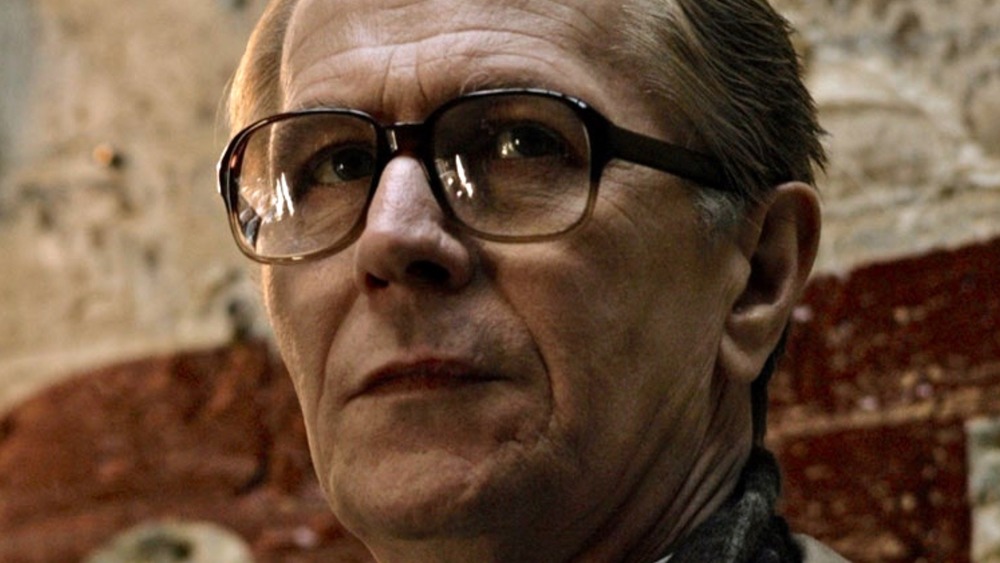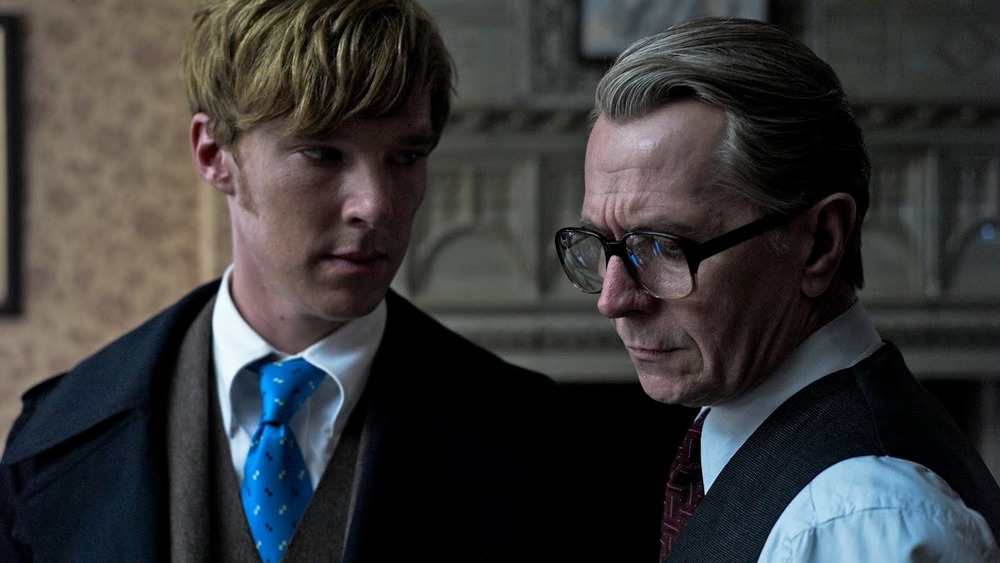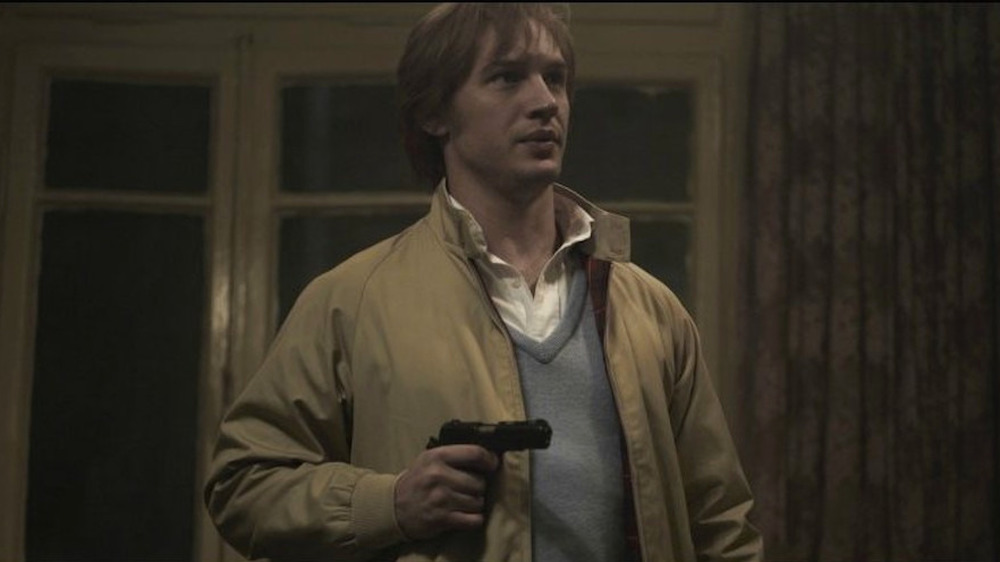The Ending Of Tinker, Tailor, Soldier, Spy Explained
The literary output of former intelligence officer and adventure novelist John le Carré is in part a response to what he considered the fantastical liberties Ian Fleming took with his James Bond character. Bond was bold and brash, while le Carré's George Smiley is retiring and inconspicuous. Bond's villains were outlandish, their schemes often preposterous. Smiley's enemies were looking to exploit small points of leverage in order to gain any advantage in the Cold War. Bond is the body, Smiley the mind.
And while reducing le Carré to the terms of his literary foil is an oversimplification, it wouldn't be the worst mindset with which to approach the 2011 film adaptation of his most famous work. Tinker, Tailor, Soldier, Spy is a kind of anti-Bond film. Its pleasures are understated and its pace is slow. The action is almost entirely interior: The fights are tussles between guilt and betrayal and trust and duty. Someone does get shot in the final act, but it is a quiet tragedy rather than a thrill.
Despite the movie's distinct lack of explosions, jet packs, and invisible cars, the story told in Tinker, Tailor, Soldier, Spy holds its own revered place in the espionage canon. It's even considered one of the best le Carré adaptations. Just look at all the actors that appeared in the film. It could have been a Harry Potter movie for all the recognizable British faces who show up in supporting roles, often in rather amusing period wigs. So what kind of story were they all so keen to tell?
Tinker, Tailor, Soldier, Spy asks who watches the watchmen?
In Tinker, Tailor, Soldier, Spy, retired intelligence officer George Smiley (Gary Oldman) has been brought in by a government minister to investigate warnings of a mole at the top of the British intelligence service, referred to colloquially as "the Circus." Smiley conducts an exhaustive investigation culminating in a trap that snares Bill Haydon (Colin Firth), a top Circus official. Haydon had been having an affair with Smiley's wife, Ann, and it's hinted that he may have been lovers with Jim Prideaux (Mark Strong), an agent he betrayed. Haydon is arrested, but Prideaux kills him while he's in custody to avenge his betrayal. Smiley is reinstated at the Circus, this time at its head.
In the end, it doesn't matter that the mole proved to be Haydon. It could have been any of the potential suspects at the top of Circus, since what mattered is how Haydon was able to control the investigation, tearing out pages in a logbook and having Prideaux shot and captured before he learned the truth. The moral, in other words, is not "don't trust the person having an affair with your wife." It's "don't trust anyone."
More importantly, it's about what living with that constant high-level of apprehension feels like — and what kind of person it takes to be attuned to all that doubt yet not be paralyzed by it. Smiley is not meant to be an aspirational figure like Bond. He's meant to show what le Carré thought it took to get the job done.
Was there a sequel to Tinker, Tailor, Soldier, Spy?
Protagonists being installed as the heads of spy organizations usually mark the beginning of things rather than the end. Le Carré certainly thought so. He wrote a total of nine books featuring Smiley and characters introduced in the Smiley novels, of which Tinker, Tailor, Soldier, Spy was the fifth. You've probably at least heard of The Spy Who Came in from the Cold, though its events took place earlier in the series.
Within this body of work, Tinker, Tailor, Soldier, Spy was the first of its own trilogy of novels detailing Smiley's long-distance battle with the head of Soviet intelligence, known as Karla. Soon after the release of Tinker, Tailor, Soldier, Spy, Oldman began teasing the possibility of a sequel based on the third book in the trilogy, Smiley's People. In 2016, the New York Daily News reported that there was a script for the sequel and that it was just a matter of getting everything in order. But as sometimes happens in complex espionage bureaucracies, that has apparently proven more difficult than expected.
"I do miss George, but oh, no, to come back is terrifying because it's got to be better," the New York Daily News quoted Oldman as saying. And that may be the problem. Tinker, Tailor, Soldier, Spy is widely regarded as the greatest spy novel ever written. Even if the story continues in movie form, there may only be one direction for it to go.


